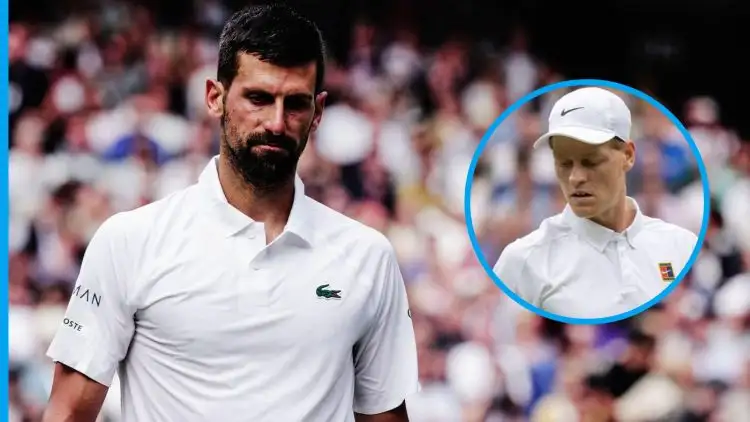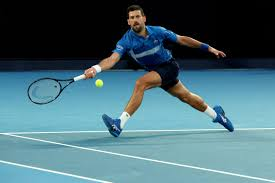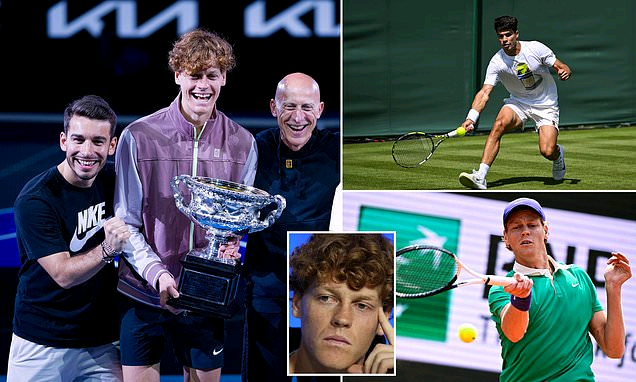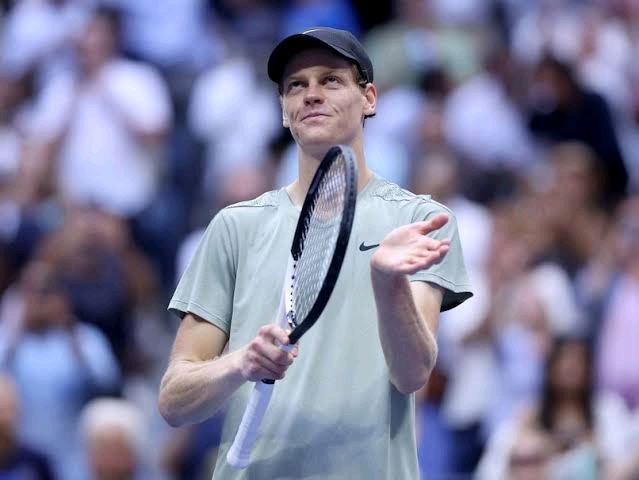**Jannik Sinner Agrees with John McEnroe on Novak Djokovic After Private Conversations: A Deep Dive into the Perspectives and Implications**
In the world of professional tennis, few players have sparked as much debate and admiration as Novak Djokovic. His achievements, resilience, and strategic prowess have made him a central figure in the sport’s ongoing narrative. Recently, a revealing development has emerged: Italian tennis prodigy Jannik Sinner publicly aligns himself with legendary American player and commentator John McEnroe’s nuanced views on Djokovic after engaging in private conversations with both figures. This alignment not only underscores shifting perceptions within the tennis community but also highlights the evolving discourse surrounding Djokovic’s legacy, conduct, and impact on the sport.
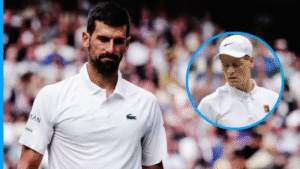
This article explores the background of these interactions, the core points of agreement between Sinner, McEnroe, and Djokovic, and the broader implications for tennis’s future.
—
- The Context: Who Are the Key Players?
**Novak Djokovic**: Hailing from Serbia, Djokovic is considered one of the greatest tennis players of all time. His record-breaking number of Grand Slam titles, exceptional athleticism, and tactical intelligence have cemented his place in tennis history. However, his career has not been without controversy, including debates over his vaccination stance, conduct during matches, and interactions with officials.
**John McEnroe**: An iconic American tennis legend renowned not only for his exceptional skills but also for his fiery temperament and candid commentary. Post-retirement, McEnroe transitioned into a respected broadcaster and analyst, often providing unfiltered opinions on current players and issues in tennis.
**Jannik Sinner**: A rising star from Italy, Sinner is regarded as one of the most talented young players on the ATP Tour. Known for his composure, technical skill, and rapid ascent, Sinner has been closely observing the tennis landscape and is increasingly vocal about issues surrounding the sport’s development and its key figures.
The Genesis of the Private Conversations
According to recent reports, the conversations between Sinner, McEnroe, and Djokovic took place during a series of private meetings and casual encounters over the past year. These dialogues were characterized by candid exchanges about Djokovic’s career, public perception, and the responsibilities of top athletes.
Sources close to Sinner revealed that he was eager to understand the full scope of Djokovic’s perspective, especially surrounding the criticisms and tribulations the Serbian star faced. McEnroe, known for his outspoken nature, provided his frank assessment of Djokovic, emphasizing his admiration for the player’s resilience and the complexities involved in his career.
Sinner, after engaging in these exchanges, reportedly found himself aligning more closely with McEnroe’s nuanced stance, leading to his public statement of agreement.
—
Key Points of Agreement
1. **Recognition of Djokovic’s Resilience and Achievements**
Sinner expressed admiration for Djokovic’s relentless pursuit of excellence, citing his resilience in overcoming injuries, setbacks, and criticism. Both McEnroe and Sinner acknowledged that Djokovic’s mental toughness and dedication are hallmarks of his greatness, deserving respect regardless of external opinions.
2. **Understanding the Complexity of Djokovic’s Public Persona**
While acknowledging the controversies surrounding Djokovic, Sinner now believes that much of the narrative surrounding him is oversimplified. After private conversations, he appreciates the complexities of Djokovic’s stance on issues like vaccination policies and the pressures faced by top athletes.
McEnroe’s perspective—that Djokovic is a multifaceted individual navigating a challenging era—resonated with Sinner, prompting him to view Djokovic with greater empathy.
3. **Critique of Media and Public Perception**
Both McEnroe and Sinner have expressed skepticism about how media narratives often sensationalize and distort Djokovic’s actions. They argue that the portrayal of Djokovic sometimes neglects the athlete’s human side and the broader context of his decisions.
Sinner emphasized the importance of fair representation and understanding in shaping public opinion, aligning with McEnroe’s longstanding critique of sensationalist journalism in sports.
4. **Support for a More Balanced View of Djokovic**
Sinner’s agreement extended to calls for a more balanced, less polarized view of Djokovic—recognizing his achievements while also holding space for his mistakes. Both individuals advocate for fairness and nuance in evaluating athletes, particularly those of Djokovic’s stature.
Broader Implications for Tennis and the Sports World
The alignment of a rising star like Jannik Sinner with John McEnroe’s perspectives on Djokovic signals a potential shift in the tennis community’s worldview. Several implications emerge:
*a. Changing Narratives and Player Perceptions**
As younger players like Sinner openly express nuanced views, the sport may move toward a more mature and balanced discourse. This could influence how future generations perceive controversy, resilience, and athlete conduct.
**b. Impact on Djokovic’s Legacy**
Public support from respected peers and analysts bolsters Djokovic’s legacy, emphasizing his human side and the challenges he’s faced. This may help reshape narratives that have historically been critical or one-dimensional.
**c. Influence on Public and Media Discourse**
Sinner’s stance might encourage fans and media outlets to adopt a more empathetic and comprehensive approach when discussing Djokovic and similar figures, fostering healthier debates around athlete behavior and ethics.
**d. Role of Mentorship and Personal Relationships**
The private conversations highlight the importance of mentorship, dialogue, and personal relationships in shaping public opinions. Sinner’s willingness to listen and then publicly endorse McEnroe’s views exemplifies the evolving dynamics of athlete interactions.
Reactions from the Tennis Community
The tennis community has responded variably to these revelations. Supporters applaud Sinner’s maturity and openness, viewing it as a sign of his growth as a player and a person. Critics, however, argue that such perspectives risk downplaying controversies or undermining accountability.
Djokovic himself has yet to comment publicly on Sinner’s statements, but insiders suggest he appreciates any positive gestures from peers, especially those grounded in understanding and respect.
Looking Forward: The Future of Tennis Discourse
The agreement between Sinner and McEnroe exemplifies a broader trend towards nuanced conversations in tennis. As the sport continues to evolve, themes of mental health, athlete autonomy, and fair representation are likely to become central.
Young stars like Sinner may serve as catalysts for change, fostering a culture where complex human stories are acknowledged rather than simplified or sensationalized. This shift could lead to a more compassionate, respectful, and thoughtful tennis community.
Jannik Sinner’s recent public alignment with John McEnroe’s views on Novak Djokovic marks a significant moment in tennis discourse. It signifies a move towards understanding the multifaceted nature of athletes, recognizing resilience and achievement while maintaining critical perspectives. As the sport grapples with ongoing challenges and evolving narratives, such dialogues among players and commentators are vital for fostering growth, empathy, and integrity in tennis.
